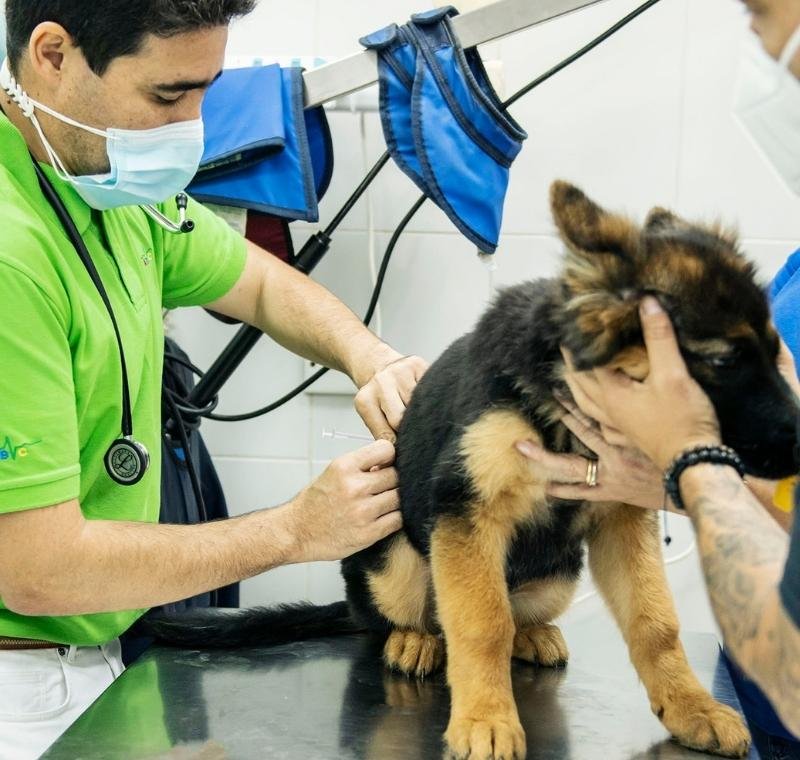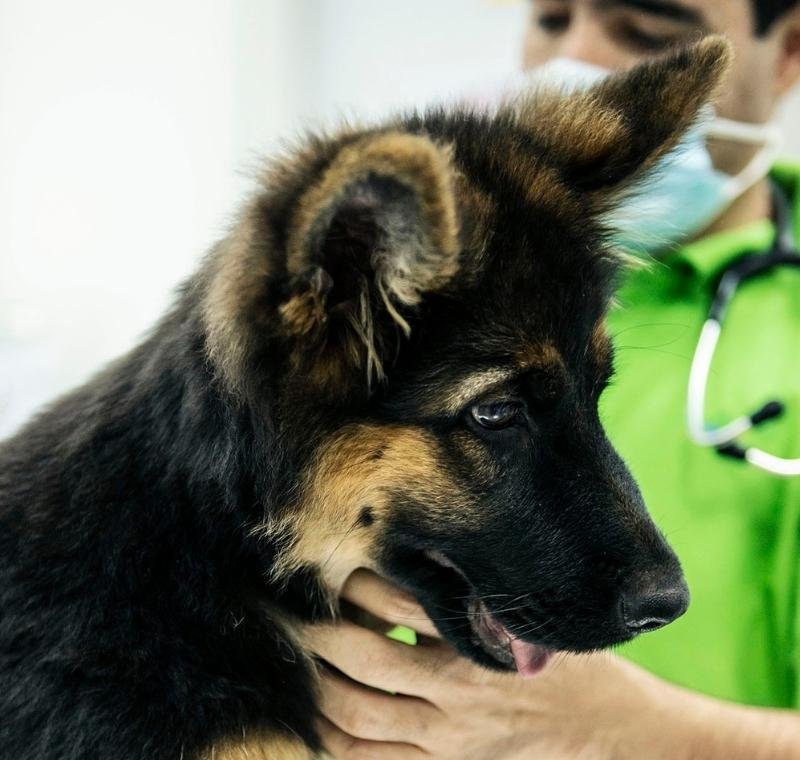
Health examinations and vaccinations for your pet
Health examinations and vaccinations are an important part of every pet’s life. At ABVC, we do recommend a bi-annual health check to ensure any changes in your pet’s health status are picked up early. During the consult, our veterinarian may ask about your concerns to carry out a routine health check to collect information on the overall body condition, temperature, heart and circulation, respiratory system, stool and urine production, skin and coat, abdomen, chest, extremities, ears, eyes, and mouth e.o. to exclude any problems or signs of illness as well as check on the vaccination status, weight and anti-parasite treatment.
Vaccinations
Many pet owners in Dubai are asking why does my pet need this physical exam before receiving vaccines. Some, they think their pet is perfectly healthy and simply not necessary to undergo a vet examination. Vaccinations, however, should not be given without a prior health check and often our vets do pick up problems that clients did not realise had started to develop. We, therefore, advise you to forward any questions you might have about your pet, or related to his/her everyday care during the consult to get the best possible outcome and information.
Benefits of giving cat or dog vaccination
1. Vaccinations protect your pets from many diseases
2. Vaccinations prevent the spread of disease to other animals too and if many pets are vaccinated in an area this lowers the exposure to diseases in your area
3. Properly vaccinated pets can travel more easily with their pet parents to other countries
4. Some vaccinations are to protect people from zoonotic risks (diseases spreading between humans and animals)
To develop a strong immunity, several injections are necessary to be given followed by a booster vaccination and then a regular annual/bi-annual or tri-yearly vaccination is given to remain at a protective level of immunity for this disease(s) throughout your pet’s life. Maintaining your pet’s annual vaccination status can help to prevent the spread of potentially life-threatening diseases. We refer to our previous blogs for more information about the vaccination for dogs or cats, which we administer in Al Barsha veterinary clinic.
How frequently should your pet have a check-up?
Generally, healthy animals will usually attend the annual appointment. All pets are different. Even when you keep a close eye on monitoring them. Elderly pets, pets with immunodeficiency disease or pets who had prior adverse reactions to vaccinations might benefit from one vaccine at a time. Remember you see your pet every day, so although you will pick up on obvious changes, small changes over time might go unnoticed, your vet is trained to see these changes, as not every change is a normal ageing change but can already be a first symptom which when picked up early can stop a disease from progressing unnoticed.

Preventive care, during routine health checkups, is the most effective way of stopping the diseases before they occur. But always remember it’s just not about your veterinarian gathering information about your pet. An annual health check is the best time to ask about the healthcare of your pet. If your pet is having symptoms or any abnormalities that you notice any time of the year do not wait for the annual checkups to share concerns with your veterinarian. Veterinarians can also discuss the most common symptoms for your pet’s stage of life frequently occurring health issues, herewith alerting you to be better prepared to recognize them.
During your annual visit, your vet makes sure that your pet is up to date with all the vaccines and booster shots and whether any other medications they are on need reviewing, adjustment, (dis)continuation or refills. It is advised to prepare for any consult to get the most out of your visit for both your pet as your own interest. So bring video footage of odd behavior, of stool, vomit or urine sample, of skin, eye or other concerns. Remember or write down food brands, toys, shampoos, dental care or anything which might require to be shared. If you cannot attend yourself, ensure the person coming on your behalf has your permission in writing and/or information on special concerns you would like us to check. A direct note can be prepared to inform you of the consult and the findings.
During the consult our veterinarian may ask about to carry out or advise for the following tests/procedures, this is in the interest of the parameters checked in the consult to support/exclude certain concerns, feel free to ask for a clear explanation and expectation as to why they are advised and what is the costs related to them, in order to make a fitting decision for your pet’s health and your personal situation.
- Blood test
- Urine test
- Parasites
- Coughing/ wheezing
- Ears and eyes
- Limbs
- Coat and skin
- Mouth / Dental
Written by Rafael Recto, ABVC senior veterinary nurse
